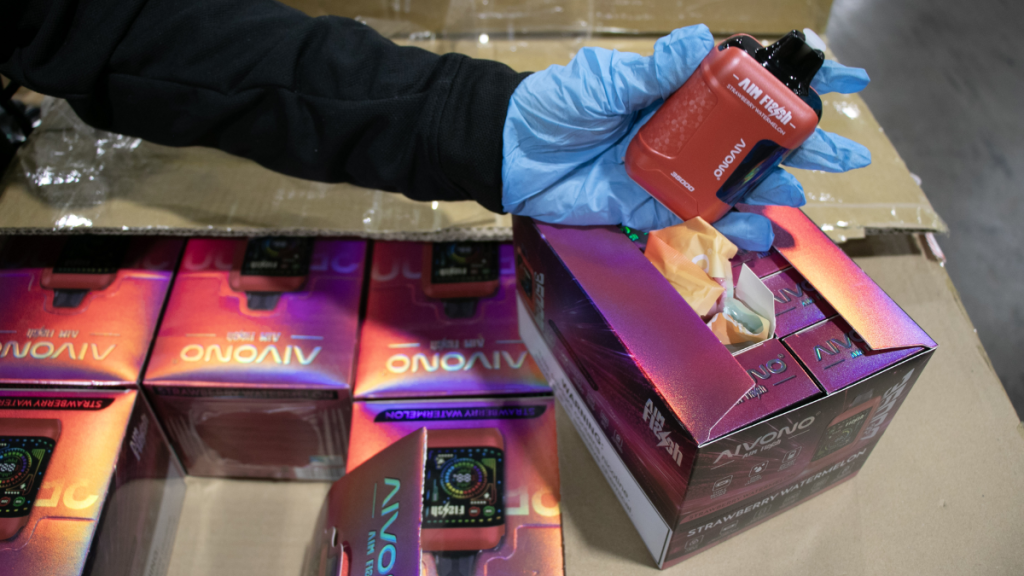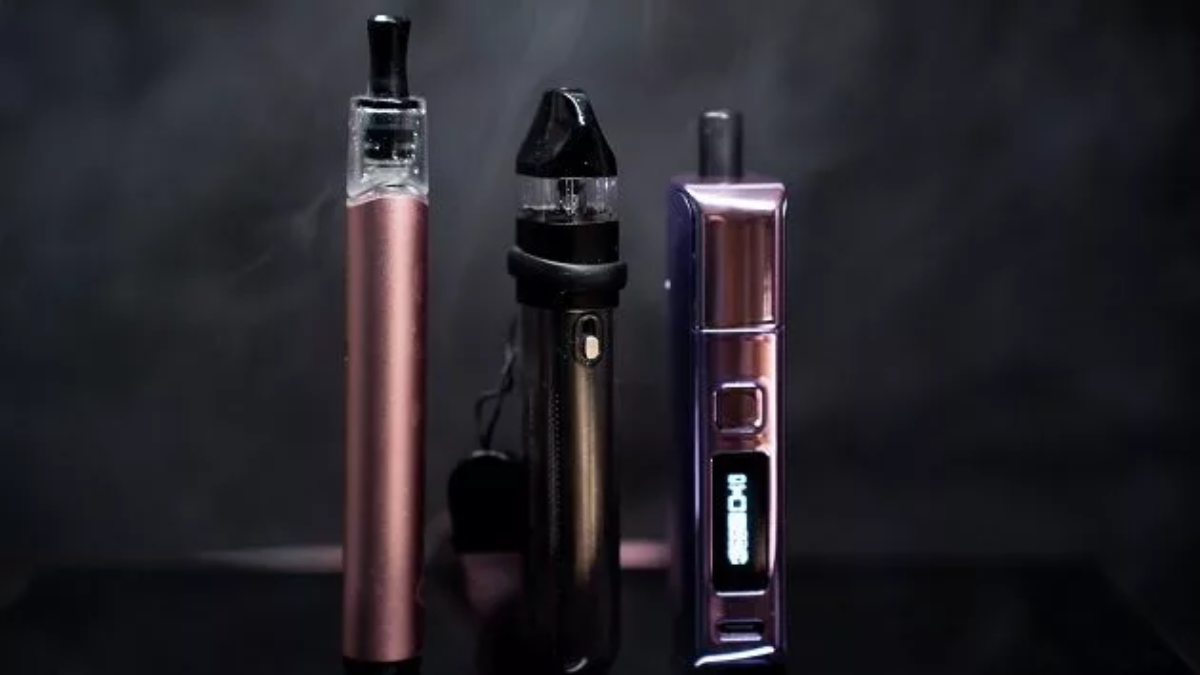WASHINGTON, D.C. — Federal authorities have seized nearly $34 million worth of illegal e-cigarettes in one of the largest crackdowns to date on unauthorized vaping products, U.S. Customs and Border Protection (CBP) and the Food and Drug Administration (FDA) announced this week.
The coordinated operation targeted shipments of unapproved e-cigarettes being imported into the United States, primarily from China and other overseas manufacturers. The confiscated products—amounting to over 1.4 million units—were intercepted at ports of entry across the country between October 2023 and March 2024.
Officials say the seized items include flavored disposable vapes and nicotine devices sold under popular brand names that have not been authorized for sale by the FDA, in violation of federal regulations aimed at curbing youth vaping and protecting public health.
Enforcement Push Amid Rising Concerns
The seizures reflect the Biden administration’s renewed efforts to enforce federal tobacco laws and stem the flow of illegal vaping products into the U.S. market. Many of the confiscated devices were marketed in bright colors and fruit flavors—attributes that health officials say make them particularly appealing to teenagers.
“This massive seizure should serve as a warning to unscrupulous actors trying to circumvent U.S. laws and endanger the health of our nation’s youth,” said Troy Miller, Acting Commissioner of CBP. “We are committed to stopping the influx of unauthorized and potentially dangerous products at our borders.”
FDA Commissioner Dr. Robert Califf echoed that message, stating, “We are deeply concerned about the continued availability of flavored vaping products that have not gone through the FDA review process. These seizures are a critical part of our effort to ensure that only authorized products remain on the market.”

Background on E-Cigarette Regulation
Under the Family Smoking Prevention and Tobacco Control Act of 2009, the FDA has regulatory authority over tobacco products, including e-cigarettes.
All vaping devices and nicotine products must be reviewed and authorized through the FDA’s Premarket Tobacco Product Application (PMTA) process to be legally sold in the United States.
To date, the FDA has authorized only a limited number of e-cigarette products—primarily those made by major tobacco companies—after determining they may help adult smokers transition away from traditional cigarettes and that their marketing does not unduly appeal to minors.
The vast majority of flavored disposables and refillable pods currently sold online or in smoke shops have not received FDA authorization and are therefore considered illegal. Still, enforcement has proven difficult, with thousands of products slipping through regulatory gaps or being sold through informal distribution networks.
Details of the Seizure
According to CBP, the seized shipments were intercepted at more than a dozen ports of entry, including major logistics hubs in Los Angeles, Chicago, New York, and Miami. The products were primarily shipped from manufacturers in Shenzhen, China—a known hotspot for vape production.
Among the brands confiscated were Elf Bar, Esco Bars, and Puff XXL—all of which have been flagged by the FDA as unauthorized and marketed in violation of federal law. In many cases, shipments were mislabeled as toys, electronics, or personal items to evade detection.
“These companies are using deceptive tactics to import products that are both unapproved and dangerous,” said Jennifer Higdon, a CBP spokesperson. “Our officers are trained to spot inconsistencies and are using advanced tools to detect mislabeled shipments.”
The total estimated retail value of the confiscated products exceeds $33.7 million, officials said.
Public Health and Youth Impact
The crackdown comes as health officials continue to sound the alarm over the prevalence of teen vaping. According to the 2023 National Youth Tobacco Survey conducted by the CDC and FDA, more than 2.1 million U.S. middle and high school students reported current use of e-cigarettes—many citing flavored disposables as their product of choice.
“The availability of these brightly packaged, fruity-flavored devices is a direct threat to the progress we’ve made in reducing youth tobacco use,” said Dr. Brian King, Director of the FDA’s Center for Tobacco Products. “These products are illegal for a reason—they’re untested, unregulated, and frequently contain high levels of nicotine.”
Medical experts have warned that excessive use of nicotine in adolescents can harm brain development, increase the risk of addiction, and lead to long-term behavioral and cognitive issues.
Industry Response
The vaping industry remains divided on the government’s enforcement actions. While major tobacco companies have largely complied with FDA regulations, smaller manufacturers and distributors have criticized the approval process as slow and biased in favor of corporate giants.
Some vape shop owners say the crackdown unfairly targets small businesses that are trying to meet customer demand and offer alternatives to traditional cigarettes.
“We’re not against regulation,” said one distributor in Florida who asked to remain anonymous. “But the current system makes it impossible for small players to compete or even survive legally.”
Future Enforcement and Regulatory Steps
FDA and CBP officials say they plan to intensify enforcement in the coming months. In addition to seizing illegal shipments, the agencies are working to shut down unauthorized online retailers and pursue civil penalties against repeat violators.
In February, the FDA sent warning letters to more than a dozen retailers and manufacturers selling illegal vape products, signaling broader regulatory action to come.
“We will continue to act against companies that ignore the law and put kids at risk,” said Califf. “That includes not only seizing illegal products at the border but taking action against domestic sellers who profit from unlawful sales.”
For more information on federal tobacco regulations and enforcement updates, visit the U.S. Food and Drug Administration at https://www.fda.gov/tobacco-products,
or learn about import and border security operations from U.S. Customs and Border Protection at https://www.cbp.gov.
Data on youth tobacco use and public health resources can be found at the Centers for Disease Control and Prevention: https://www.cdc.gov/tobacco.
Disclaimer – Our team has carefully fact-checked this article to make sure it’s accurate and free from any misinformation. We’re dedicated to keeping our content honest and reliable for our readers.
